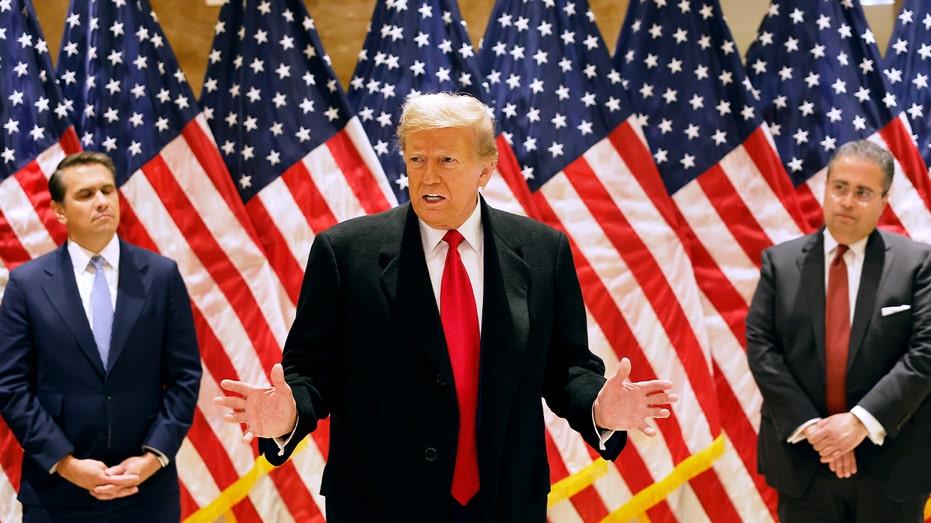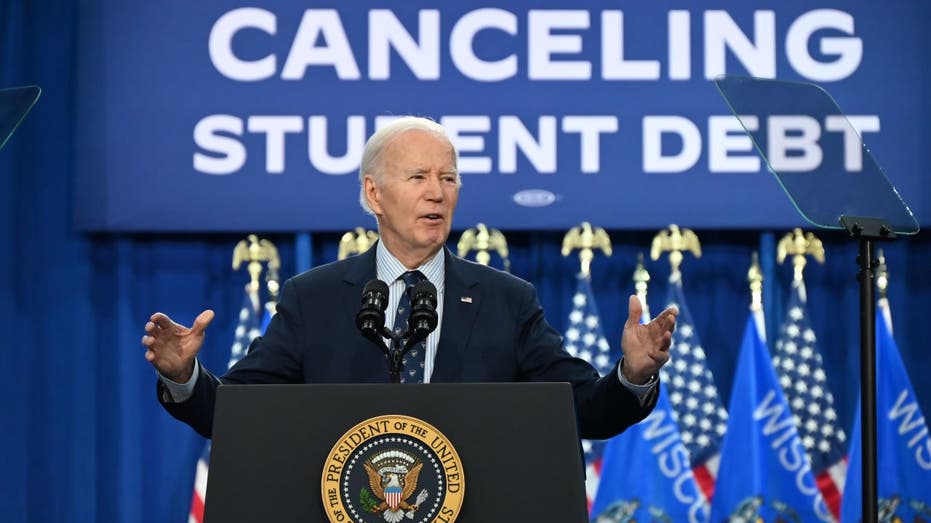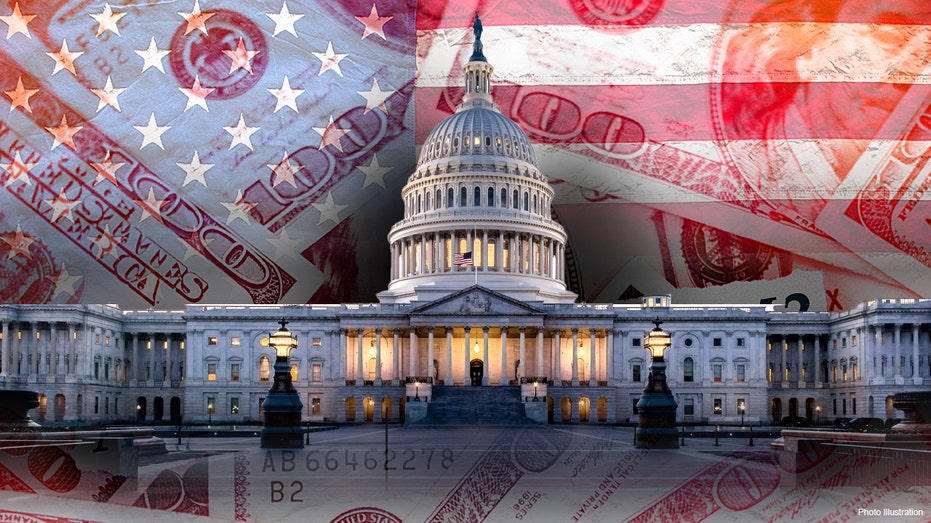The U.S. national debt has surged in recent years under the leadership of President Biden and former President Trump, who are set to face off on the debate stage on Thursday for the first time in this presidential election cycle.
A new report by the nonpartisan Committee for a Responsible Federal Budget (CRFB) examines the impact of policies implemented during the Biden and Trump administrations on the national debt, finding that each added trillions to the debt through a mix of partisan and bipartisan policies.
The report comes as the national debt held by the public relative to the size of the U.S. economy is set to reach a record high level during the next four-year presidential term.
The Trump and Biden administrations were confronted with the COVID pandemic and enacted legislation aimed at addressing its economic impact, in addition to other partisan legislative and regulatory actions.
NATIONAL DEBT TRACKER: AMERICAN TAXPAYERS (YOU) ARE NOW ON THE HOOK FOR $34,748,398,688,455.49 AS OF 6/26/24
They also both enacted significant bipartisan spending bills, given that each had their respective party hold narrow majorities during the first two years of their terms before the opposing party gained a narrow House majority in the second two years.
Here’s a look at CRFB’s findings about the Trump and Biden administrations’ impact on the national debt through partisan and bipartisan measures over the 10-year budget window used by policymakers:
Trump administration (1/20/17–1/20/21)
- Net borrowing: $8.4 trillion
- Net borrowing excluding COVID measures: $4.8 trillion
- Partisan borrowing: $1.9 trillion
- Bipartisan borrowing: $6.5 trillion

During the Trump administration, the largest partisan measure that increased the debt was the Tax Cuts and Jobs Act of 2017, which added $1.9 trillion over the 10-year budget window when accounting for interest per CRFB. Additionally, changes to the Affordable Care Act (aka ObamaCare) added $539 billion and other health care-related executive actions added $456 billion.
Bipartisan budget bills in 2018 and 2019 added $2.1 trillion in debt over the 10-year budget window per CRFB.
The analysis also includes the bipartisan CARES Act, which added $1.9 trillion; the Response and Relief Act, which added $983 billion, and other COVID relief measures that tacked on $756 billion.
The main debt reduction measure identified by the CRFB came in the form of new and increased tariffs that former President Trump implemented through executive actions, which lowered the projected debt by $443 billion.
FEDERAL BUDGET DEFICIT TO REACH NEARLY $2 TRILLION THIS YEAR, CBO PROJECTS
Biden administration (1/20/21–6/21/24)
- Net borrowing: $4.3 trillion
- Borrowing excluding American Rescue Plan: $2.2 trillion
- Partisan borrowing: $3 trillion
- Bipartisan borrowing: $1.3 trillion

During the Biden administration, the largest partisan measure that added to the debt per the CRFB’s analysis was the American Rescue Plan Act, which added $2.1 trillion in debt over 10 years. Biden’s executive actions providing a student loan debt handout added $620 billion, while other executive actions added $548 billion.
Bipartisan measures implemented under Biden that increased the debt included spending bills for fiscal years 2022 and 2023, which added $1.4 trillion; in addition to the Honoring Our PACT Act, which added $520 billion; and the Bipartisan Infrastructure Law, which added $439 billion.
A bipartisan debt reduction measure identified by the CRFB was the bipartisan Fiscal Responsibility Act, which lowered the debt by $1.5 trillion.
Partisan deficit reduction measures included the Inflation Reduction Act, which reduced the debt by $252 billion over 10 years, as well as executive actions that lowered it by $129 billion.
RISING NATIONAL DEBT TO REDUCE AMERICANS’ INCOME GROWTH: REPORT

What does it mean?
“What this analysis demonstrates is that both President Trump and President Biden have added substantially to America’s borrowing over a ten-year window, through legislation and executive actions they’ve approved in their first presidential terms,” Maya MacGuineas, president of the Committee for a Responsible Federal Budget, told FOX Business in a statement.
Viewers can watch the CNN Presidential Debate Simulcast on Fox News starting at 9 p.m. Eastern.
Read the full article here











